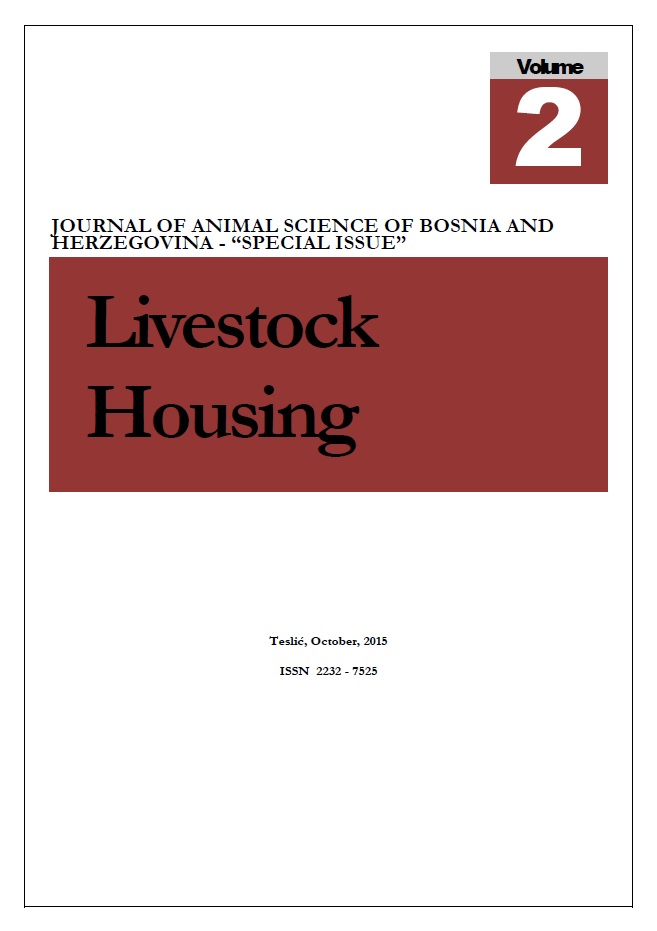INFLUENCE OF FARMING SYSTEMS ON INDICATORS OF BEEF CALVES GROWTH
DOI:
https://doi.org/10.7251/JAS1502002DAbstract
The aim of this study was to evaluate growth ability of Charolais calves in different systems of farming. The observations were performed in period of 8 years (2007 - 2014) in one herd, which was transiting from conventional to ecological farming system. Period from 2007 to 2010 was of conventional character, 2010 to 2012 transition phase, and from 2012 to 2014 ecological phase. This transfer is directly linked to changes in cow´s welfare and nutrition. Growth ability (live weight at birth, 120, and 210 days of age, average daily gain from birth to 120, from birth to 210, and from 120 to 210 days of age) of 518 Charolais calves was measured. Statistical analyses were performed using SAS 9.3 software, GLM procedure. The model equations contend effect of sex, number of parity, month of calves birth and type of farming system. Difference in birth weight of calves between farming systems was small and insignificant. This fact may be due to breeding system focused on easy calving. Increase of values measured in different age and average daily gains were statistical significant (P < 0.05) between conventional and ecological farming. The increase of parameters of weight and average daily gain could be largely connected with genetic progress in Charolais population in Czech Republic and following good selection of bulls to insemination and natural breeding. Nevertheless, the transition from conventional to ecological farming system did not affected growth ability of beef cattle negatively and, in contrary, results of growth improved farm economy.Downloads
Published
2019-04-08
Issue
Section
Чланци

